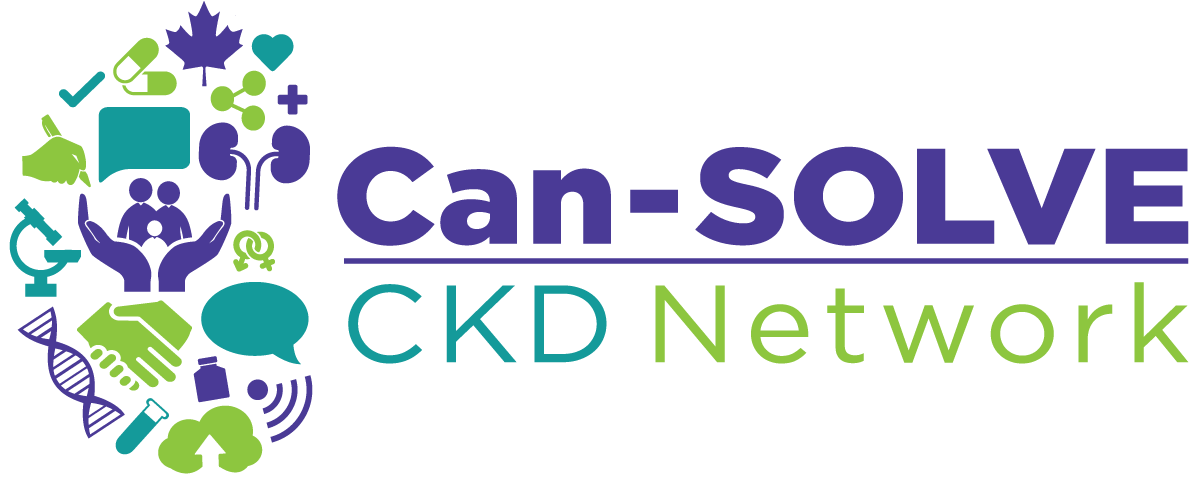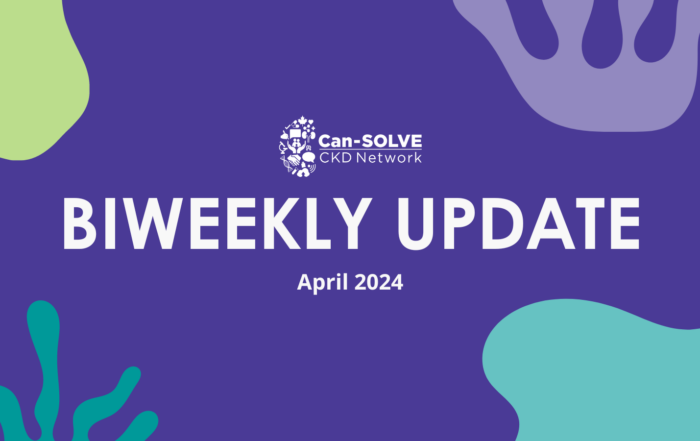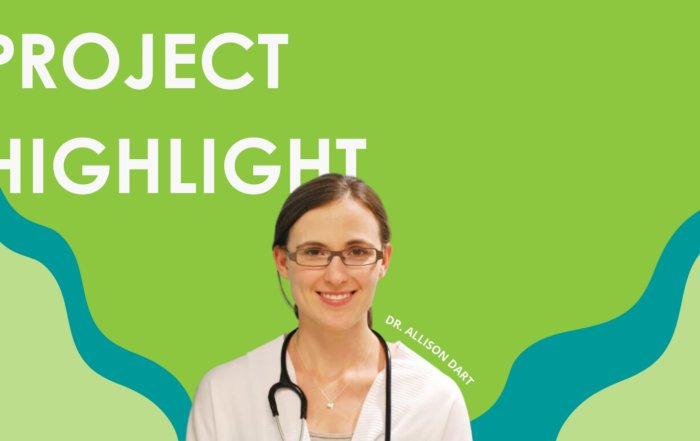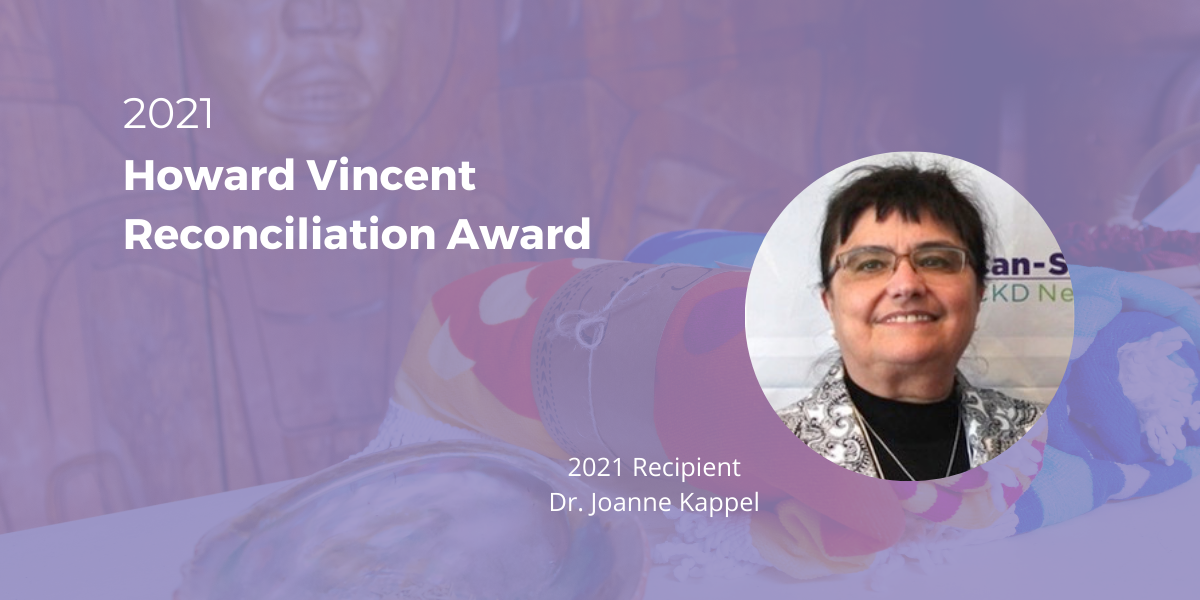
September 23, 2021
We are excited to announce that Dr. Joanne Kappel is the recipient of the inaugural Howard Vincent Reconciliation Award.
The award honours a non-Indigenous individual who has demonstrated commitment to furthering Reconciliation with Indigenous peoples within the Can-SOLVE CKD Network or who has inspired others to continue Reconciliation efforts.
The award was presented to Dr. Kappel at the Can-SOLVE CKD Network Annual Meeting on September 10. We were so honoured to have the award presented by Howard Vincent’s sister Jean Allbuery. The award came in the form of a 16-inch Buffalo hide drum made by Greg Anderson, member of Lac Seul First Nations Band in Treaty 3 Territory.
“Receiving the Howard Vincent Reconciliation Award is a great honour,” says Dr. Kappel. “Howard challenged all of us to reflect critically on our work and relationships with Indigenous peoples. For me, he has shown that actively listening to people who have been silenced for many generations, can strengthen relationships, build respect and provide a path to improve health for Indigenous people. Each day, I strive to learn a little more about Indigneous history, culture and world views and to thoughtfully work together to create a new, shared future. Thank you Howard for leading the way.”
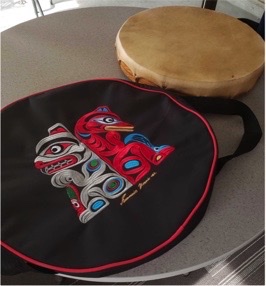
Dr. Kappel works in various capacities throughout the Can-SOLVE CKD Network. She is Principal Investigator of a research project working to increase Indigenous patients’ awareness of kidney disease treatment options, and is also co-chair of the Can-SOLVE CKD Knowledge User/Knowledge Translation Committee and a member of the Wabishki Bizhiko Skaanj Learning Pathway working group.
Selina Allu, Can-SOLVE CKD Knowledge Translation Broker, says Dr. Kappel “is an exceptional leader who demonstrates a genuine and authentic personal commitment to lifelong learning and application of knowledge she has acquired around working with, and reconciliation efforts with Indigenous Communities in Saskatchewan. Her project team (under her leadership) exemplifies how researchers can authentically and respectfully partner with indigenous communities in a culturally safe and appropriate way.”
Dr. Kappel’s commitment to furthering Reconciliation with Indigenous peoples within the network includes working closely with Knowledge Keeper George Laliberte to ensure tradition including ceremony and proper protocols are embedded in her research project. This includes participation in ceremonies, presentation of tobacco, and opening prayer at each meeting.
Wabishki Bizhiko Skaanj is a learning pathway that aims to enhance researchers’ knowledge and awareness of racial biases, Indigenous voices and stories, the impact of colonization on Indigenous health, and culturally safe health research practices. Dr. Kappel’s involvement in the learning pathway includes implementing the values of the learning markers in her own work.
“She is always reminding us to recognize the existence of structural racism and its impact on health outcomes for Indigenous people” says Allu. “Joanne definitely ‘walks the talk’ and this can be seen in our Core Values as she practices the 6 R’s: Respect, Reciprocity, Relevance, Responsibility, Relationships and Real. I have learned from Joanne that Indigenous people value relational learning approaches that involve equitable sharing of traditional and Western health care knowledge. She shown me how a research team can successfully use a “two-eyed seeing” approach. She has always emphasized the importance of listening, learning, understanding and acting in a good way. These reminders inspire all lot of team members, me included.”
We wish to congratulate Dr. Kappel and acknowledge nominees Heather Harris and Simone Dew.
More Network Updates
Connect with us!
Subscribe to learn more about what we do, why it matters, and how you can get involved!
